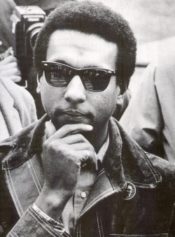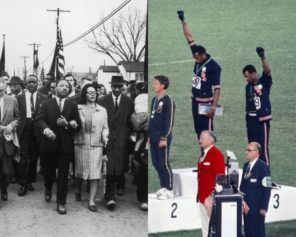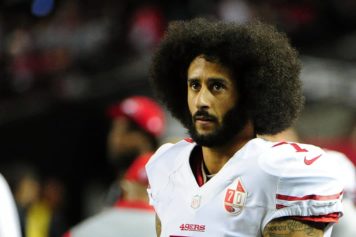One of the mistakes the Black “conscious community” keeps making is promoting the concept that we all need to be entrepreneurs and that Black people shouldn’t be relying on government jobs and weekly paychecks.
We are advised by these well-meaning people that we all should be starting businesses instead. While this is a noble aspiration, it is only partly true. Black people are too far behind in the global economic game — and that is precisely what it is, a ruthless game — to simply have each Black person start a business and have that individualistic act alone solve our collective political-economic problems.
In fact, most of the people in successful ethno-nationalist or racial groups do not own a business at all. Moreover, many of the Black people on the African continent counted as being in business for themselves are simply selling small perishable items such as fruits and vegetables or inconsequential cultural artifacts like wristbands and handicrafts. Often, culturally or politically active Black people promote the aforementioned mindset to encourage and uplift, but rather than alleviating the perceived problems, they quickly become tautologies. The full meanings of these slogans are rarely explained to the degree that widespread understanding accompanies the slogan itself. Examples of such slogans are, “We need unity” or “You can’t pass on a paycheck to your children” and, most notably for the purposes of this article, “We need to start our own businesses!”
Most businesses owned and operated by Black people in the USA are service oriented. We have few to no resource-delivery businesses such as markets, grocery stores, utility services (gas, water, electricity), textiles and manufacturing plants that can control the distribution of goods that ALL people need, want and can’t do without on a daily basis. There is no essential good or product that Black people as a group own and control. No essential resource, good or product that can only be obtained by non-Blacks through dealing with a Black man or woman.
The Chinese control much of the global manufacturing business and the infrastructure development industry in Africa. Koreans and the Japanese control large portions of the electronics industry and have a significant presence in the auto manufacturing industry. Asians generally control the Black hair care business in Africa and the diaspora. White religious minority groups have outsized influence in banking, academia and media. Other white ethnic groups control financial services, shipping, military and government. East Indians have a large representation in hotel management, technology and medicine.
However, there is no major industry that is under the complete control of Black people, and by extension, Black families with whom other races must deal to receive the necessary goods for their survival and life enjoyment. Many people think sports and entertainment are the exceptions to this, but they’re not. Black people don’t control either. Despite all the multimillion-dollar contracts and endorsement deals, when it’s all said and done, we are still just the hired help. If they’re paying us millions, that just means we’re making them billions.
Like so many other sectors of the economy, we look for jobs with other races and ethnicities instead of owning the means of production and primarily employing ourselves.
Solutions can be seen in how others have organized their socio-economic situations. Therefore, I’d like to submit one word for your consideration: “Corporations.” Actually, I would rather submit a variation of the word: “Cooperations!” Yes, Black people need businesses, but what we need more are corporate collectives — cooperations! These business structures would give us the group power to achieve the goals that are often outlined by the Black consciousness movements and they can have ancillary effects that could solve some of the sociopolitical problems we constantly bemoan.
As a thought experiment, I would like to use how Euro-Americans have organized their economy as a model to consider. We can observe that it is not every white person who has a corporation, or business for that matter, but indeed most have a job with white-owned-and-operated corporations. In these corporations, European culture is enforced and promoted. In fact, all people working in these corporations (including Blacks) must conform to the standards, dress, practices and language of European culture in order to not only receive a salary but advance in the corporate structure. If people in the Black Consciousness Movement truly are about the renaissance and revitalization of an authentic African-centered culture, one of the most successful examples of doing so in recent history is to form a corporation.
A corporation is essentially a controlled economy. It is set apart from the larger society, it is protected by laws and it functions through ethical codes and generally accepted practices. This is how economic practices and institutions practically promote and sustain a culture as well as influence and guide behavior. In addition, only those who have the requisite skills are allowed to participate in the daily activities of the corporation. This is otherwise known as having a job. This increases the efficiency of the corporation to attain its goals and limits the direct responsibility that the corporation has within the surrounding community. In order to correct for this lack of responsibility, the corporate officers engage in lobbying political officials so as to bring about the socio-political arrangements it seeks. Think about Bill Gates starting the Gates Foundation in order to promote vaccination in Africa. We may have differing opinions about his foundation’s stated goals, but he is undertaking the mission nonetheless, and the main structure he is using to achieve this aim is the corporation.
As I stated before, we often proclaim the mantra, “We need unity!” However, I think this is an incompletely stated desire. What we need is Functional Unity. This means we have to come to terms with the internal Black class divisions. Now, I don’t mean in the Marxist sense, I mean in the functional sense. Not everyone who is Black has the same skill set, level of understanding and commitment. This is not to admonish people but to state a simple fact. I also don’t intend to promote a classist or elitist view but just to suggest the idea of using our own most talented people instead of having them drained off to other cultures and corporate collectives. Therefore, we must compete by offering compensation, status and privileges that other groups cannot meet. This will serve two purposes: It will give us access to our most promising talent to use for our collective benefit and it will help us build loyalty within our culture and race.
To give an example of what I am proposing, I spent considerable time in several African countries, many of which have tourism as their main industry. The problem with this is that there are many small, independently run tour companies with no interaction or coordination with one another. Hence, they simply survive season to season and are all dependent on European and Asian tourists coming back each year to deposit large fees into their coffers. They don’t coordinate to use their profits collectively and diversify their investments, so in the case of an economic downturn in Western (or Eastern) countries, which would reduce the number of tourists visiting Africa on safari each year, they would still have large revenue streams coming from their other investments, such as private equity funds.
Furthermore, they could employ more of their countrymen and women in sectors besides the menial jobs that are available to a rarity of nationals performing tasks such as being a driver, porter or cook. Not organizing their capital in this manner leaves them open to assault and eventual takeover by corporate interests with larger capital reserves. These larger corporations can use their resources to create a mammoth-sized tour company and then lobby the government to change the laws dictating the operation of tour companies to favor the large one and disadvantage the small, independently owned companies. This happened in the USA in the oil industry, which gave rise to the Rockefeller dynasty and the “Seven Sisters” oil cartel.
So, my proposal is for Black people to create cooperatives. Cooperatives are a variation of the corporation but designed specifically for the interests of Black people who participate in our cooperative business culture. Cooperatives establish the African-centered economic model that we need to fulfill the social, political and educational goals we have as a people. One such model cooperative is Us Lifting Us (ULU). ULU is a fully Black-owned-and-operated cooperative that seeks membership from like-minded Blacks both in the USA and globally. The goal of ULU is to organize the resources of the Black community — human, financial and material — to reengineer a New Black Economy. With a viable and lucrative economic base, Black people can act as a collective with accountability from our leadership to achieve our strategic aims and goals.
ULU has the following 10-point Plan and Appeal to accomplish such. If we attract an initial membership of 1000-3000 member-owners, we can be well on the way to achieving our flagship venture, The ULU Mart. Profits earned from this wholly owned and controlled marketplace can be used to compete for investments and development projects on the African continent. Currently, the Chinese are outperforming Black people in the diaspora in this area. It is incumbent for us, the children of Africa, to shake off the dust of centuries of oppression and marginalization and get into the global economic game to win.
Aaron James is a writer and educator. He has primarily written on the topic of education, but he has interests in both the political-economy and history. Born in the United States, he has been fortunate enough to travel to several countries around the world. Currently, he enjoys a quiet life at home with his family.


